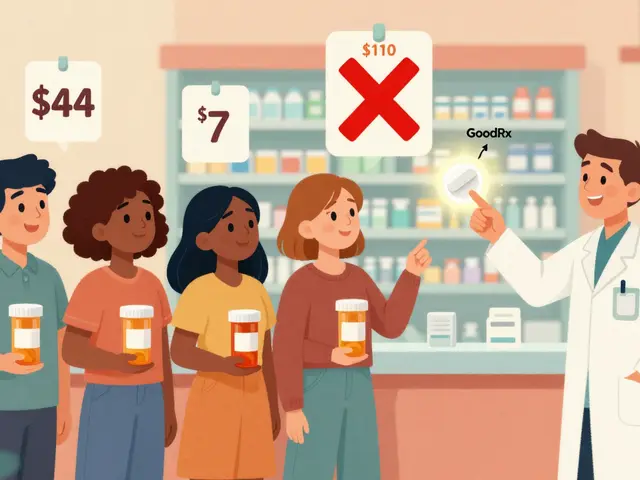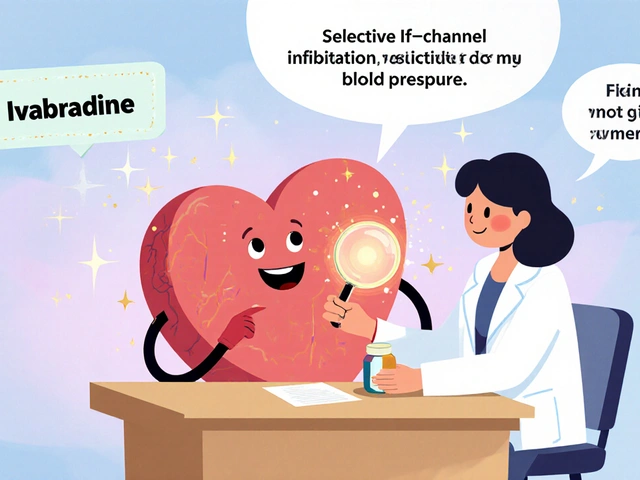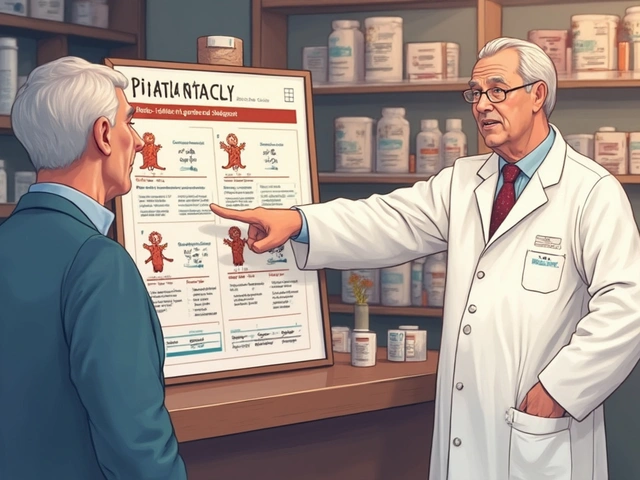Cognitive health — what to watch, what to change today
Forget fancy tests. If your thinking feels slower, you’re more forgetful, or you notice sudden confusion, that matters. Small changes often help a lot. Below I’ll point out common medication risks, easy daily habits that protect your brain, and clear signs to see a doctor.
Medications that can hurt thinking
Some drugs make memory and attention worse — especially in older adults. Benzodiazepines like Ativan can cause long-term memory and concentration problems when used for months or years. Topiramate (Topamax) often brings word-finding trouble and slowed thinking for some people. Antihistamines or drugs with anticholinergic effects (some sleep, allergy, and nausea meds, including older products like Phenergan) can cause fogginess and drowsiness.
Diuretics and blood-pressure combos can shift electrolytes and, in the elderly, lead to hyponatremia — low sodium — which shows up as confusion or falls. If you take Lisinopril-HCTZ or similar mixes, ask your clinician about monitoring sodium and hydration. Always bring a full list of medications, supplements, and over-the-counter drugs to appointments so your provider can spot risky combinations.
Daily habits that help your brain
Small routines protect thinking power. Move every day — brisk walking or simple strength work helps blood flow to the brain and supports memory. Keep blood pressure and blood sugar in a healthy range; good vascular health equals better thinking over time. Aim for 7–8 hours of sleep and regular sleep times — sleep clears brain waste and helps memory consolidation.
Check vitamin D if you rarely get sun. Low vitamin D has been linked to poorer mood and thinking in some people, and replacing a deficit is simple. Eat a balanced diet with vegetables, whole grains, and healthy fats; nuts and sources of omega-3s support both heart and brain health. Stay mentally and socially active: reading, language practice, group classes, or volunteering all count.
Be careful with supplements and online pharmacies. Some supplements promise big cognitive boosts but lack solid evidence. If you buy meds online, pick verified pharmacies and keep prescriptions current — and check our guides on safe online pharmacy purchases if you’re unsure.
Watch for red flags: sudden confusion, new or worsening memory loss, trouble speaking, or difficulty walking. These can signal urgent problems like infection, severe electrolyte imbalance, or stroke. If symptoms come on fast, seek emergency care.
Practical next steps: review your meds with a clinician or pharmacist, get a basic blood panel (including sodium and vitamin D if you’re at risk), schedule regular walks, and keep a simple brain-health checklist on your phone. Little, consistent habits add up faster than one-time fixes.
If you want reading to match your situation, check our posts on medication side effects (like Ativan and Topamax), hyponatremia in the elderly, and Vitamin D guidance. Those articles give concrete, real-world tips you can use with your doctor.
4
Reminyl: How Galantamine Is Changing Dementia Treatment in 2025
Reminyl (galantamine) is making waves in dementia care. This deep dive covers how it works, who it's for, side effects, and practical tips to help you or loved ones.
Latest Posts
Popular Posts
-
 Enteral Feeding Tube Medication Safety: Compatibility and Flushing Protocols Explained
Enteral Feeding Tube Medication Safety: Compatibility and Flushing Protocols Explained
-
 Celiac Disease: Gluten-Free Living and Nutrient Supplementation
Celiac Disease: Gluten-Free Living and Nutrient Supplementation
-
 Magnesium Supplements and Osteoporosis Medications: What You Need to Know About Timing
Magnesium Supplements and Osteoporosis Medications: What You Need to Know About Timing
-
 Out-of-Pocket Costs: How Generics Cut Your Drug Bills - and When They Still Hurt
Out-of-Pocket Costs: How Generics Cut Your Drug Bills - and When They Still Hurt
-
 Meniere’s Diet: How Sodium Restriction and Fluid Balance Reduce Vertigo and Hearing Loss
Meniere’s Diet: How Sodium Restriction and Fluid Balance Reduce Vertigo and Hearing Loss



